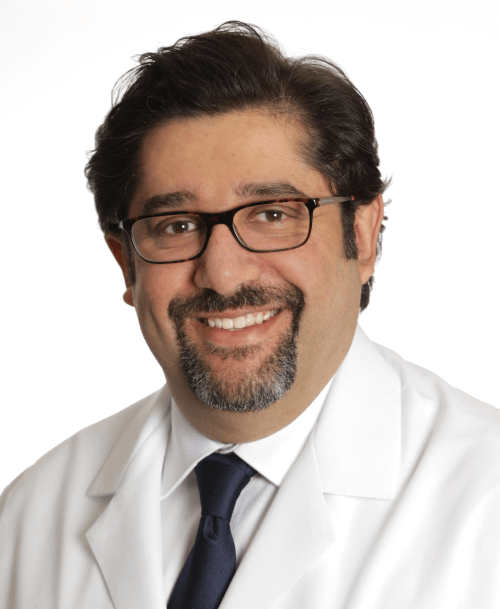The team of multi-disciplinary headache specialists in NYC and NJ offers tailored pain management therapies with dynamic multimodal approaches based on your pain’s cause, type, and intensity. Customizing treatment for each patient allows us to control not only chronic pain but also its exacerbations, eliminating the significant toll of headaches on your everyday life.
What is Multimodal Approach?
The multimodal approach offers multiple modalities of treatment, including pharmacological and non-pharmacological. When utilizing a pharmacological approach, the patient needs to pay careful attention to avoid developing unwanted effects of medications while aiding in pain relief. The multimodal approach uses abortive medications for acute headache pain relief but offers treatments such as blocks and injections for continued pain relief and preventative measures.
Headache treatment can work best when multiple modalities are used together at every visit throughout the duration of treatment.

Pharmacological Approaches
The two most common classes of medications used for migraine headache management include:
Abortive Medications
Abortive Medications are a type of medication used to stop or reduce the severity of a headache once it has started. They are typically taken as soon as symptoms begin to appear. These medications work by targeting the underlying cause of the headache, whether it is inflammation, constriction of blood vessels, or other factors.
Some of the most commonly used abortive medications for headaches include:
- Nonsteroidal anti-inflammatory drugs (NSAIDs), such as ibuprofen and naproxen. These medications work by reducing inflammation and pain in the body. They are particularly effective for tension headaches and mild to moderate migraines.
- Triptans. Triptans work by narrowing blood vessels in the brain, helping relieve migraine symptoms such as pain, nausea, and sensitivity to light and sound. Triptans are most effective when taken at the onset of a migraine, and they should not be used for tension headaches.
- Ergotamines work by constricting blood vessels in the brain, reducing the dilation and inflammation that causes the pain associated with migraines and cluster headaches.
In addition to these medications, some patients may benefit from the use of antiemetics, which are medications used to treat nausea and vomiting associated with headaches. Antiemetics may be prescribed in combination with other abortive medications to provide more comprehensive relief. The specialist will closely consider your individual case to determine the most appropriate pharmacological approach for treating your headaches.
Preventative Medications
Preventative medications focus on reducing the frequency and severity of your symptoms. Some medications commonly incorporated in preventative treatments for headaches include:
- Beta-blockers work by blocking the effects of adrenaline and making your heart beat slower. They are shown to be a good way to treat episodic migraines in those with a history of heart disease, high blood pressure, or anxiety.
- Antidepressants alternate the levels of certain neurotransmitters in the brain and improve mood and emotion, which has been shown effective in preventing migraine and tension-type headaches.
- Anticonvulsants are used to reduce the activity of nerves in the brain and are considered to be suitable first-line migraine prevention agents. They are often prescribed for those with a history of seizures or epilepsy.
- Calcium channel blockers relax blood vessels in the brain and have been shown effective in the prevention of migraine and cluster headaches.
Non-Pharmacological Approaches
Pharmacological treatment of headaches can be exceedingly challenging if there are significant adverse effects or medication interactions. Your doctor can recommend non-conventional and non-pharmacological treatments to overcome these problems.
Common non-pharmacological approaches to headache treatment include:
- Behavioral therapy can be used to identify and modify certain behaviors that may contribute to headaches.
- Biofeedback can help you learn to control bodily functions such as muscle tension, heart rate, and breathing and reduce tension.
- Acupuncture involves penetrating specific points of the body with needles to restore balance and promote healing.
- Physical therapy can be used to help alleviate tension and improve the range of motion in the neck and shoulders.
- Dietary changes entail limiting or avoiding trigger foods and beverages, such as caffeine, alcohol, and processed foods.
- Regular exercise can help reduce stress and tension in the body.
Depending on your individual needs and preferences, these approaches can be used alone or in combination with pharmacological treatments. Combining both pharmacological and non-pharmacological approaches allows us to use a more holistic approach to headache treatment that addresses the underlying causes while improving your overall quality of life.
At Advanced Headache Center, we utilize the latest scientifically proven multimodal approaches to headache treatment. Come see us in our office in NYC or NJ and learn for yourself why so many of our patients view us as the best headache doctors specializing in managing pain multimodally and in an informed way.

Dr. Hosny is an Ivy League Trained, UCNS-accredited, board-certified headache specialist who offers the latest preventive and abortive treatments to provide safe and effective head pain relief. As an active member of prominent organizations and professional societies that advance headache science, education, and management, such as the National Headache Foundation, Dr. Hosny specializes in diagnosing and treating a wide range of head pain disorders, including tension headaches, migraines, and cluster headaches, to name a few.
Dr. Hosny's reputation for enhancing headache care quality through the use of the most effective and technologically advanced treatment options for persistent primary and secondary chronic headaches has been acknowledged by Castle Connolly and Healthgrades, where he has received over 200 positive reviews. Dr. Hosny is also recognized as a distinguished New York City physician and headache specialist by New York Magazine.
More about Dr. HosnyNew York, NY 10003
(646) 763-2222




